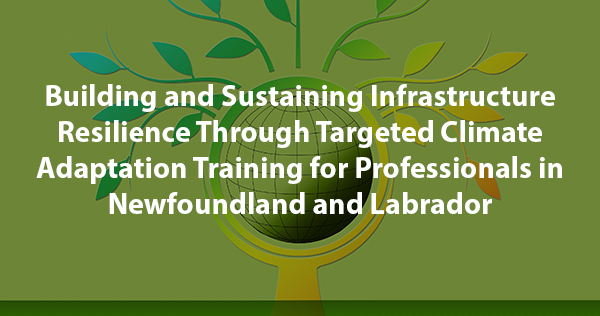Investigators

Project lead:
Joseph A. Daraio, Ph.D., P.Eng.
Assistant Professor
Department of Civil Engineering
Memorial University of Newfoundland
St. John's, NL.
Project description
The purpose of the project is to build capacity among infrastructure practitioners to integrate climate change considerations into infrastructure decision-making processes and investments through:
- developing and delivering a suite of customized training modules;
- creating a Community of Practice to promote best practices; and
- enabling and enhancing integration of climate resilience into provincial and municipal policy processes.
The target audience for this project includes professional engineers, professional planners, policy-makers and other municipal staff involved in public infrastructure planning and development. A key part of (1) provides training on the use of existing provincial tools for climate change flood risk mapping and coastal erosion data. Additionally, a core component is to understand the current state-of-the-art for the design of climate resilient infrastructure, to identify existing knowledge gaps, and to determine critical training and resources that are needed outside of currently available information. A special working group will be established to identify and prioritize current knowledge gaps in the understanding and integration of climate change into infrastructure planning and development, including cli- matological, hydrological, and ecological effects. The group would be engaged in providing input and expertise to inform the development of the following:
- A comprehensive review of current knowledge, know-how, and knowledge gaps for integrating climate change into design and planning of infrastructure will be conducted that includes input from practitioners, academics, and other experts.
- Development of sample design projects, real and hypothetical, examining aspects and differences between a traditional approach and one that includes adaptive capacity.
While the primary focus of the working group will be on implications and applications for NL, outputs will have relevance in all of Canada, including direct application to Cold Regions throughout the country, consistent with GWF’s vision.
